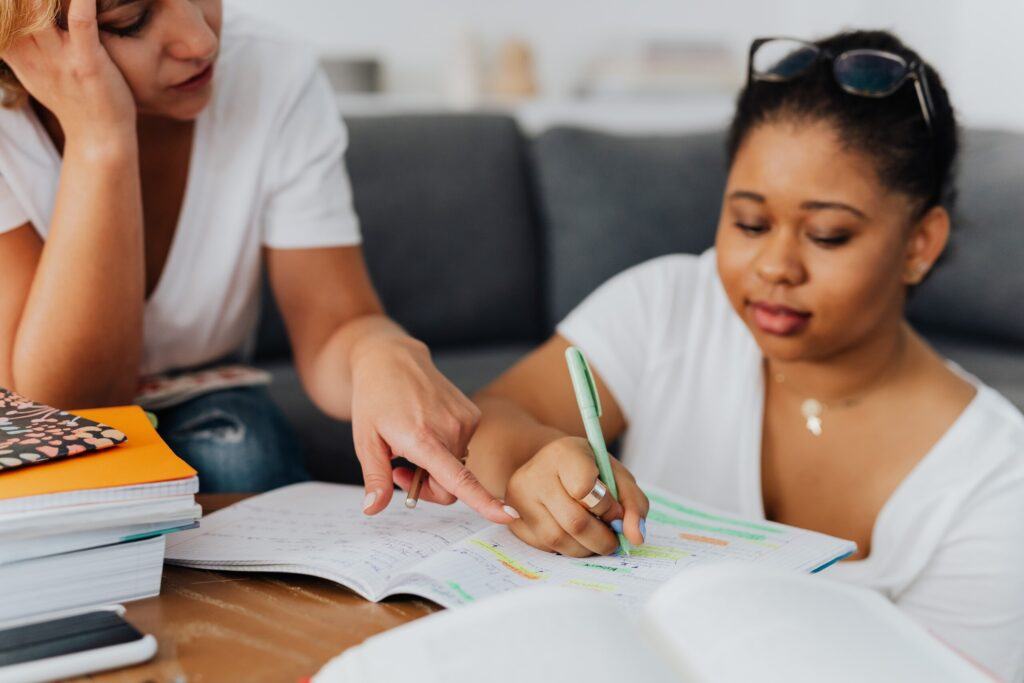How to Help a Child Who Is Being Bullied
- Category: Relationships
- June 18, 2022
Bullying is a major issue occurring in classrooms, hallways, playgrounds, sports teams, and online spaces throughout the country. It can start at a very young age and occur all the way through high school and beyond.
As we grow into adulthood we learn how to productively address and dispel bullying. However, for children and teenagers who don’t yet know how to advocate for themselves, bullying can continue for a long time, which can lead to low-self esteem and even mental health disorders such as anxiety and depression. This is why it’s so important to know how to recognize the signs that a child is being bullied and offer them the assistance they need.
Recognizing the Signs That a Child Is Being Bullied
In a perfect world, a child would come to an adult and tell them they are being bullied. Unfortunately, this is often not the case. A child may be embarrassed or scared that the bullying will get worse if an adult intervenes. They might not even realize that what they are experiencing is considered bullying and more than just harmless teasing.
While each child may cope with bullying differently, some of the most common signs to look out for include:
- Not wanting to go to school
- Withdrawing from others
- Changes in appetite
- Changes in sleeping patterns
- Having unexplained cuts or bruises
- Coming home with damaged belongings or coming home hungry
- Feeling sick in the morning before school
- Becoming aggressive or acting out at home
- Suddenly performing poorly at school
- Not wanting to talk about what’s going on
How to Talk With a Child You Believe Is Being Bullied
If you suspect that your child or a child within your care is being bullied, the first thing you should do is have an honest conversation with them and encourage them to open up about what they are experiencing. It is important to remain calm, avoid getting emotional, and ensure that you’re using age-appropriate language. Make sure this conversation is held in a peaceful, private area where the child will feel safe and comfortable.
Some leading questions you can ask the child that can encourage them to share include:
- Who did you play with during the school day?
- Are there parts of your school day that you don’t like?
- Do the children at school include you in their games?
- Is there anyone who is mean to you at school?
- Has anyone been mean to you on purpose?
If your child is older, your questions may sound more like this:
- Is there anyone at school who teases or bothers you a lot?
- Do people ever say mean things to you or about you using social media?
- Is there anyone who is purposefully causing you stress or embarrassment?
Assure them that, whatever they have to say, you believe them and support them. Once your child has opened up to you, thank them for being honest with you and let them know that you’ll do whatever is necessary to help them.
Addressing the Bullying
If you have determined that your child is being bullied, the next step is to report the issue to the proper authorities. This could be a teacher, coach, school counselor, or even the parent of the child doing the bullying. Make sure to communicate what is happening with as much detail as possible and check back in the weeks to follow to ensure that the issue really has been addressed and hasn’t been swept under the rug.
If you’re worried about your child being dubbed a “tattletale” or facing the increased wrath of the bully/bullies for speaking with the authorities, you can also request that the name of the child who offered the complaint be kept confidential. Make sure to keep an eye on your child and their mental state and don’t be afraid to check in with them and ask if the situation has improved or if the bullying is still going on.
Help to Prevent Bullying
There are things every parent can do to help prevent bullying from ever taking place. Some examples include:
- Educate your child about what bullying is and how to recognize the signs of it
- Teach your child to speak to a trusted adult if they see bullying taking place
- Help your child to be a good role model for others by being inclusive and treating everyone with respect
- Inform your child about how some children have different appearances, abilities, needs, and backgrounds, and that’s okay
- Build up your child’s self-confidence and ensure that know their worth
Bullying is a common problem and it often starts at an early age. Not every child will confide in their parents about bullying out of fear of what may happen if an adult intervenes. If left unaddressed, bullying can lead to low self-esteem and mental health problems like anxiety and depression. This is why it is so important to be able to recognize the common signs of bullying in a child and how to deal with it. Some of the most common signs include not wanting to go to school, feeling sick in the mornings, and withdrawing from friends and family members. If you believe your child is being bullied, have a conversation and encourage them to open up. Then, speak to the necessary authority figures and address the issue. At SokyaHealth we can help you achieve peak mental wellness. Call 503-298-4592 today to learn more.



